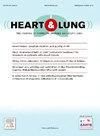Long-term effectiveness of SGLT2 inhibitors in type 2 diabetes patients with myocardial injury: A population-based study
IF 2.6
4区 医学
Q2 CARDIAC & CARDIOVASCULAR SYSTEMS
引用次数: 0
Abstract
Background
Sodium-glucose cotransporter 2 (SGLT2) inhibitors have demonstrated cardiovascular benefits in randomized trials. However, real-world evidence on their cardioprotective effect in high-risk populations with documented myocardial injury—such as heart failure (HF), acute coronary syndrome (ACS), myocardial revascularization, or cardiac surgery—is still limited.
Objective
To evaluate the impact of SGLT2 inhibitor adherence on cardiovascular outcomes in patients with type 2 diabetes mellitus (T2DM) and a history of myocardial injury, in a real-world setting.
Methods
We retrospectively reviewed the healthcare utilization databases of the Lombardy region (Italy) to identify all patients with T2DM who were dispensed SGLT2 inhibitors between 2014–2020, and had one hospitalization for HF, myocardial revascularization, ACS or cardiac surgery in the previous 10 years. Adherence was calculated as the proportion of days covered by therapy during follow-up. Cox regression analysis was performed to estimate the hazard ratios (HR) for cardiovascular hospitalizations and death.
Results
Among 1789 HF, 5759 revascularization, 3986 ACS, and 4580 cardiac surgery patients, higher adherence to SGLT2i therapy was consistently associated with a lower risk of CV events or death. Adjusted HRs for high vs. very low adherence were: HF, 0.65 (95 %CI:0.52–0.82); revascularization, 0.70 (95 %CI:0.59–0.84); ACS, 0.76 (95 %CI:0.62–0.93); and cardiac surgery, 0.69 (95 %CI:0.57–0.84). A dose-response trend was observed across adherence levels.
Conclusion
High adherence to SGLT2 inhibitors therapy can significantly decrease the risk of cardiovascular-related hospitalization and death in patients with T2DM and several forms of myocardial injury, such as HF, ACS, myocardial revascularization, and cardiac surgery.
SGLT2抑制剂对2型糖尿病合并心肌损伤患者的长期疗效:一项基于人群的研究
背景:钠-葡萄糖共转运蛋白2 (SGLT2)抑制剂在随机试验中显示出心血管益处。然而,现实世界的证据表明,它们对记录心肌损伤的高危人群(如心力衰竭(HF)、急性冠状动脉综合征(ACS)、心肌血运重建术或心脏手术)的心脏保护作用仍然有限。目的:在现实世界中,评估SGLT2抑制剂依从性对2型糖尿病(T2DM)和心肌损伤史患者心血管结局的影响。方法:我们回顾性回顾了意大利伦巴第地区的医疗保健利用数据库,以确定2014-2020年期间所有分配SGLT2抑制剂的T2DM患者,并在过去10年内因HF,心肌血管重建术,ACS或心脏手术住院。依从性计算为随访期间治疗所覆盖天数的比例。采用Cox回归分析估计心血管住院和死亡的风险比(HR)。结果:在1789例心衰、5759例血运重建术、3986例ACS和4580例心脏手术患者中,较高的SGLT2i治疗依从性与较低的心血管事件或死亡风险一致相关。高依从性与极低依从性的调整hr为:HF, 0.65 (95% CI:0.52-0.82);血运重建术,0.70 (95% CI:0.59-0.84);Acs, 0.76 (95% ci:0.62-0.93);心脏手术,0.69 (95% CI:0.57-0.84)。在不同的依从性水平上观察到剂量-反应趋势。结论:高依从性SGLT2抑制剂治疗可显著降低T2DM合并心衰、ACS、心肌血运重建术、心脏手术等多种心肌损伤的患者心血管相关住院和死亡风险。
本文章由计算机程序翻译,如有差异,请以英文原文为准。
求助全文
约1分钟内获得全文
求助全文
来源期刊

Heart & Lung
医学-呼吸系统
CiteScore
4.60
自引率
3.60%
发文量
184
审稿时长
35 days
期刊介绍:
Heart & Lung: The Journal of Cardiopulmonary and Acute Care, the official publication of The American Association of Heart Failure Nurses, presents original, peer-reviewed articles on techniques, advances, investigations, and observations related to the care of patients with acute and critical illness and patients with chronic cardiac or pulmonary disorders.
The Journal''s acute care articles focus on the care of hospitalized patients, including those in the critical and acute care settings. Because most patients who are hospitalized in acute and critical care settings have chronic conditions, we are also interested in the chronically critically ill, the care of patients with chronic cardiopulmonary disorders, their rehabilitation, and disease prevention. The Journal''s heart failure articles focus on all aspects of the care of patients with this condition. Manuscripts that are relevant to populations across the human lifespan are welcome.
 求助内容:
求助内容: 应助结果提醒方式:
应助结果提醒方式:


